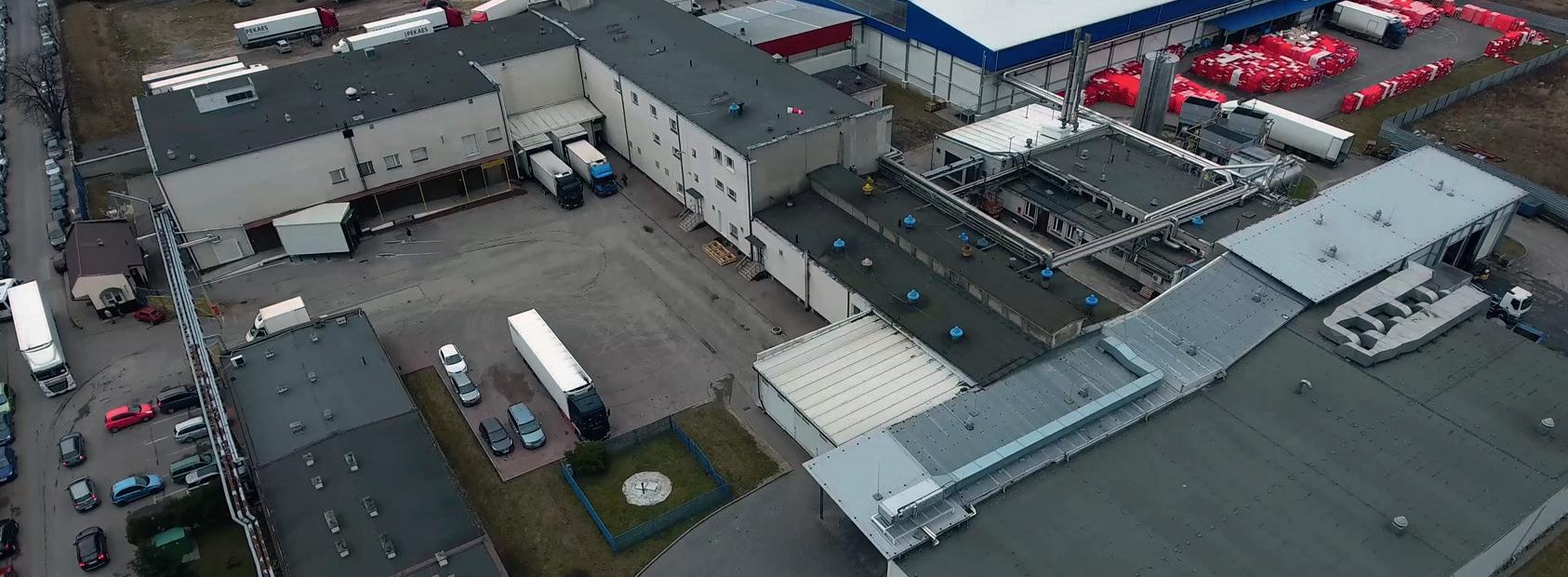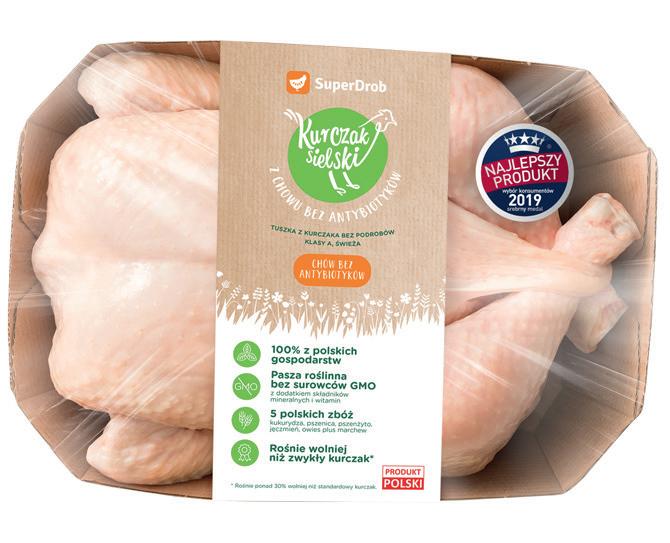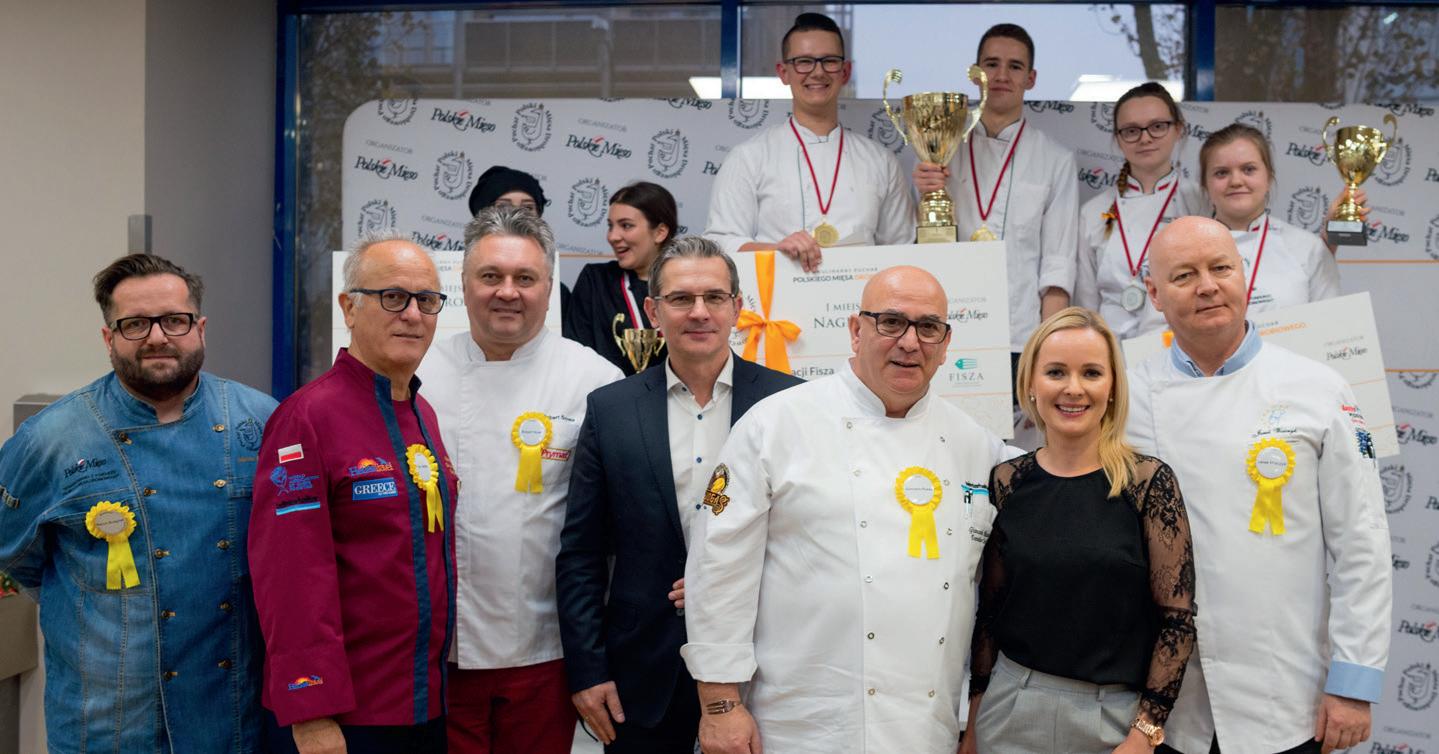
5 minute read
pabout Thailandwith Robert Bogusz
Straight out of Thailand
A few questions to Robert Bogusz, Business Development Director of SuperDrob SA, currently working and learning in Thailand in various areas of CP Food.
Advertisement
Where are you and what exactly is it that you do?
The last 5 months in Thailand have been for me a time of constant changes - this is one of the key elements of the training here. For the first 1.5 months I participated in the FLP4 (Future Leaders Program), in which there were 300 participants from all over the world. Then I was promoted to LDP1 (Leaders Development Program), where I am currently learning and working in a project team. Once a month all teams come to the CPLI (CP Leadership Institute) headquarters. There we can present the results and progress of our work on a given project. After only 15 minutes of presentation, we get 10 minutes to listen to the feedback from our listeners and observers. Among them is Khun Dhanin Chearavanont himself – Senior Chairman of CP together with the Management Board of the Company and representatives of Top Management of all its businesses. “Report Out” – is the name of this element of the training - usually lasting 3 days and all the time spent there takes place under the watchful eye of the HR department, which takes care of the development of each of the participants. Moreover, I have had the opportunity to work, among others: – For 1 month in the convenience store – For 2 months in a convenience food factory in the shrimp industry – For 2 months in a poultry slaughter and processing plant
All the above locations are situated in different parts of Thailand such as Bangkok, Korat and Kleang. The biggest reward for me during my stay here is that I have a chance to get to know people from around the world.
”Team Workshop” shrimp business in CPLI, photo: CPLI
Mutual exchange of experiences and getting to know cultural differences gives me the opportunity to broaden my horizons, practice a foreign language, and above all to establish mutual relations and contacts for many years to come.
What are the visible differences in culture and working habits in Thailand?
As I have already mentioned, cultural differences are incredible and can be observed literally everywhere: on the street, in the shops, or even at work. When working with Asians you should remember not to be “hot-headed” – I had a doubtful pleasure to find out about it on my own skin. It was certainly a lesson for me for my whole life. The Thais value peaceful and a meticulous approach to business. They are very composed in action and at the same time extremely polite and helpful. They do not know the word “NO”. There is a 9-hour work system including an hour break for lunch. It is the custom of the Thai people to eat together with their whole team and to share ordered dishes - this is a very empathic custom that applies throughout Thailand.
If you ask me about the future, I must admit that I will always remember the words of Senior Chairman from his speech during the inauguration of the FLP4 program: "Please, think outside of the box and never close yourself for change”

All participants of LDP1 program in front of CPLI, photo: CPLI
What are the most interesting duties so far when it comes to the scope of your work and study?
The most interesting job for me was working in the shop “7- Eleven”. My duties included responsibility for the durability and suitability for consumption of products on the shelf, ordering goods and receiving deliveries, as well as cleaning the shop and.... fiscal cash register service! I must admit that the reaction of the Thais who have seen the European shopping assistant was invaluable. This is my most treasured memory, because it allowed me to remember what being humble in business really is. It showed me the hard work and reminded me of the scale of responsibility of the shop’s employees. It also gave me the opportunity to make direct contact with the customer in order to better understand their needs. Working in the shrimp business was also a precious time, which naturally pulled me out of my own comfort zone and showed me how great the results can be through a more perspective way of thinking.
What will you try to implement in the company after returning to Poland?
The cultural difference makes each of us (I mean the Thais and the Poles) focus on something differ
ent in our work. This allows us to exchange experiences and knowledge. We learn from each other, to which both sides are very open. Currently I am in constant contact with our company and I always try to join our delegations coming to Thailand, giving possible support from my side. If you ask me about the future, I must admit that I will always remember the words of the Senior Chairman from his speech during the inauguration of the FLP4 program: “Please, think outside of the box and never close yourself for change.” These words work very well in my professional and private life, so I will be happy to infect others with this positive energy.
Just say a few words about how you spend your free time. What can you do every day in Thailand?
As far as my free time is concerned, I don’t have too much of it as it might seem. It is always Sunday, and more recently also Saturday, in a weekly work cycle. From my regular classes I manage to attend the Church for Sunday Mass and read books. I also try not to let go of my hobby which is motorization, so sporadically I go to the karting track, where I have the opportunity not to forget how to drive a motor vehicle. I’m also a big fan of Thai cuisine, especially Street Food, so I often look for new and interesting places to try something new. Bigger events: I and my new friends made an all-day trip to the Gulf of Thailand, where we had the opportunity to sail to the island of Ko Lan. Undoubtedly it was one of the most charming places I had the opportunity to see.

Robert Bogusz with Khun Phatanee Leksrisompong – Executive Vice President at CP Group oraz Member of the Supervisory Board of SuperDrob S.A., photo: Khun Nirada Leksrisom-pong

Street Food in Bangkok, photo: Robert Bogusz


Beef noodles in Korat, photo: Robert Bogusz





